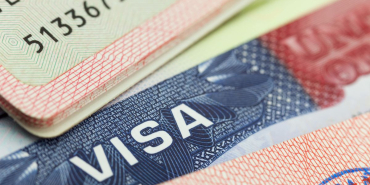Australia Cancels Extended Post-study Work Rights for International Students

The Australian government has implemented changes to its policy regarding post-study work rights for international students.
These modifications aim to address evolving economic needs and enhance the integrity of the international education system. Previously, international graduates with qualifications in specific skill shortage areas could extend their Temporary Graduate visa for an additional two years. However, effective mid-2024, these extensions will no longer be available, reverting to the standard duration of two to three years depending on the degree level. This decision reflects the government's desire to prioritize using the visa system for facilitating education rather than as a pathway to permanent residency.
Moreover, the government is implementing a broader migration strategy to improve the overall quality and credibility of international education in Australia. This strategy encompasses several key elements:
Introducing a "Genuine Student Test": This test will replace the existing "Genuine Temporary Entrant" requirement and aims to ensure students are genuinely motivated by academic pursuits.
Stricter Regulation of Student Visa Applications: The application process will become more rigorous, with stricter regulations to guarantee the legitimacy of visa applications.
Higher English Language Requirements: Applicants will now need to demonstrate a higher level of English proficiency, as evidenced by an increased minimum IELTS score from 6 to 6.5.
Reduced List of Approved Courses: The pool of approved courses for international students will be reduced, focusing on areas aligned with national skill needs.
Restrictions on Course Swapping: Limitations will be placed on students' ability to switch courses, ensuring they remain engaged in their chosen field of study.
Age Limit for Temporary Graduate Visa: The age limit for obtaining the Temporary Graduate visa has been lowered from 50 to 35 years.
These changes, combined with the discontinuation of post-study work rights extensions, demonstrate the government's commitment to aligning the international student visa system with Australia's economic priorities. The objective is to ensure that international graduates contribute to addressing existing skill shortages in the country. The recent policy changes align with the government's broader efforts to reduce overall migration intake by 50% over the next two years. This decision stems from concerns about exceptionally high net migration figures in past years.
The government aims to address perceived issues within the migration system by tightening regulations for international students and low-skilled workers. The Australian Department of Home Affairs reports that approximately 20% of international student visa applications were denied in the second half of 2023, marking the highest rate in three years. Additionally, universities will now be classified into risk categories based on past student visa regulation violations. This risk-based approach aims to prioritize applications from students studying at lower-risk institutions.
With approximately 768,000 international students currently enrolled in Australian universities, these reforms represent a significant shift in the country's approach to international education. While these changes may impact the experiences of some international students, they are intended to promote a more sustainable and strategic migration system that aligns with Australia's evolving economic needs.








Add new comment